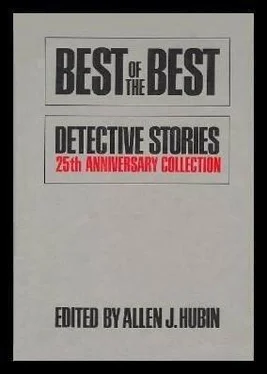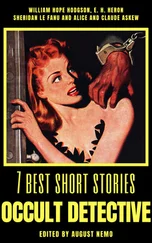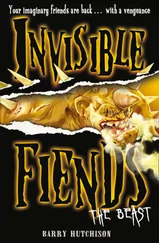Stephen Barr - Best of the best detective stories - 25th anniversary collection
Здесь есть возможность читать онлайн «Stephen Barr - Best of the best detective stories - 25th anniversary collection» весь текст электронной книги совершенно бесплатно (целиком полную версию без сокращений). В некоторых случаях можно слушать аудио, скачать через торрент в формате fb2 и присутствует краткое содержание. Город: New York, Год выпуска: 1971, ISBN: 1971, Издательство: E.P. Dutton & Co., Жанр: Детектив, на английском языке. Описание произведения, (предисловие) а так же отзывы посетителей доступны на портале библиотеки ЛибКат.
- Название:Best of the best detective stories: 25th anniversary collection
- Автор:
- Издательство:E.P. Dutton & Co.
- Жанр:
- Год:1971
- Город:New York
- ISBN:978-0-525-06450-3
- Рейтинг книги:5 / 5. Голосов: 1
-
Избранное:Добавить в избранное
- Отзывы:
-
Ваша оценка:
- 100
- 1
- 2
- 3
- 4
- 5
Best of the best detective stories: 25th anniversary collection: краткое содержание, описание и аннотация
Предлагаем к чтению аннотацию, описание, краткое содержание или предисловие (зависит от того, что написал сам автор книги «Best of the best detective stories: 25th anniversary collection»). Если вы не нашли необходимую информацию о книге — напишите в комментариях, мы постараемся отыскать её.
Best of the best detective stories: 25th anniversary collection — читать онлайн бесплатно полную книгу (весь текст) целиком
Ниже представлен текст книги, разбитый по страницам. Система сохранения места последней прочитанной страницы, позволяет с удобством читать онлайн бесплатно книгу «Best of the best detective stories: 25th anniversary collection», без необходимости каждый раз заново искать на чём Вы остановились. Поставьте закладку, и сможете в любой момент перейти на страницу, на которой закончили чтение.
Интервал:
Закладка:
Trant had a firm hold on Joan Hyde’s arm. He still liked her perfume.
“A good detective,” he said modestly, “would have solved it before it happened. It’s too bad, Miss Hyde. If I’d been a little brighter, we might be going to the theater tonight, instead of to the Tombs...”
~ ~ ~
In a notable stroke of genius R. Austin Freeman, in The Singing Bone (1912), created what has come to be known as the inverted detective story. The inverted form is particularly exacting in its demands on the writer: he must disclose the identity of the murderer at the outset and yet maintain suspense and reader interest through the ensuing detection of the crime. Though “The Million-to-One Chance,” from the 1950 anthology, is not inverted detection in this sense, hanging as it does upon the recognition of the significance of a single incident — it well approaches the form and, as with the classic inverted story, offers the challenge to the reader: by what flaw(s) in his scheme is the culprit tripped up?
Roy Vickers
The Million-to-One Chance [5] Copyright 1949 by The American Mercury, Inc. Reprinted by permission of the author and Ellery Queen’s Mystery Magazine .
“Acting on information received,” — the cliché which means that a copper’s nark, or other informer, has pulled Scotland Yard out of a difficulty — the police located the corpse of Arthur Crouch some six months after the murder. It was, from the police point of view, a nice, tidy murder, with no loose ends. Locate the corpse and you had located the murderer.
Oddly enough, it was not the murder but the cliché which caused the scandal, the questions in Parliament, the public hullabaloo. How had the information been received? The circumstances of the crime excluded the possibility of a witness at any stage. Something, it seemed, was being covered up.
Nobody suggested that Stretton might be innocent of the murder: his guilt was obvious. Nobody wanted to know the name and address of the informer. But nearly everybody wanted to be assured that, in this case, the cliché was true — that a person or persons existed who had told Scotland Yard where the body was to be found.
It was the Animal Lovers League that set the snowball rolling — due to the fact that Crouch happened to have a dog with him when he was murdered. And the dog happened to be a mastiff! The legendary dog of England, now as rare a spectacle as a horse-drawn carriage! A huge, fierce animal, looking even fiercer than it is — in appearance suggesting a bulldog the size of a Great Dane.
The breed of the dog swelled the publicity. The public was reminded that mastiffs used to board the Spanish galleons with Drake’s men — that Nelson was afraid of them, and banished them from the Navy.
And here, in 1937, was a mastiff turning up in a murder mystery — but in the strange role of informer. Indeed, the Animal Fans believed that this dog was able to reason that its master had been murdered: that it understood it must therefore communicate with the police: that it had persisted in its efforts for more than six months — only to be shot by Scotland Yard when it had nobly done its duty.
This sob-story of the Martyred Mastiff — with a near-human mentality — was even accepted by many who were not dog-minded, because it was the simplest way of dodging a dilemma.
Crouch, who lived in Hampstead, North London, came out of his house, leading the mastiff, in the late afternoon of July 23rd, his car being parked nearby. A schoolboy of fifteen, who stopped to gape at the mastiff, testified that Crouch shouted to a man who had just strolled past the house, apparently a friend. The boy’s interest was on the dog, so he had observed only that the other man was “big” and that Crouch was “little.”
On one essential point the boy was positive. Crouch, the victim, had persuaded the big man — presumed to be the murderer — to enter the car. “Be generous, and let’s use my car,” Crouch had said. The words had stuck in the boy’s memory because he had thought it a funny way to talk about giving a man a lift.
At dawn the car had been found in Central London. But the man and the dog — which was taller, on its hind legs, than the man, and substantially heavier — had disappeared, leaving no traces whatever. Nothing relevant was discovered in six months. Then — presto! — the whole case was cleaned up in a few hours.
The tall man who had been persuaded to enter the car was Dennis Stretton. He was an engineer, of some minor distinction, in his early forties. He and Crouch had been fellow students and close friends. Stretton had graduated with a First; Crouch, who had taken only a Fourth, subsequently specialized in the finance of engineering. Their friendship had never been formally broken, but they had not seen each other for seven years.
A news paragraph had misinformed Stretton that Crouch was away on holiday with his wife — his second wife — or Stretton would not have been loitering outside Crouch’s house in Hampstead.
He had come solely to indulge his own morbid melancholy. He wanted to gloat over the house in which Crouch lived — more precisely, the house in which Crouch had lived with the late Mrs. Crouch, who had died some eighteen months previously. The late Mrs. Crouch — a wistful, attractive Belgian — had been engaged to Stretton before she married Crouch seven years ago.
The car was parked some dozen yards up the road, so Stretton missed its significance. Crouch, coming out suddenly with the mastiff, had spotted him before he had gone three full paces.
“Dennis!” he called.
It would have been ridiculous to walk on as if he had not heard. Stretton turned round, startled into speechlessness as much by the bull-head of the mastiff, flush with Crouch’s hip, as by the awkwardness of the meeting.
“I say, Dennis, we don’t have to cut each other, do we?” Crouch added: “I’ve missed you like the devil!”
“It’s very civil of you to say that, Arthur.” He did not believe that Crouch had missed him. “The ‘Journal’ said you were in Sussex, or I—”
“Driving down this evening. I’m on my way to park poor old Oscar with the vet for ten days.” Pointless conversation, which showed that Crouch, too, felt the strain, though he could, Stretton reminded himself, talk his way out of anything. “Look here, Dennis, let’s be frank with each other, as we used to be. I know there’s a certain atmosphere which nothing I can say will dispel. All the same, I’m going to ask you a favor.”
“By all means!” When you felt as Stretton felt, no satisfaction could be obtained from mere discourtesy.
“I’m having a ghastly job with the Belgian Probate people to wind up poor Leonie’s estate. Red tape about identification — and I wonder if you would be good enough to help?”
“Me! How could I possibly help?”
“Leonie told me once that you never returned her passport.”
“Didn’t I?” Stretton was trying to remember.
Crouch went on: “As we were married in Belgium, we used mine — endorsed with her married name, of course. Her original passport is about the only means of convincing them that Leonie Crouch was once Leonie de Ripert.”
“If I still have it, I know where it must be. I’ll send it to you.”
This was not what Crouch wanted.
“Could I come with you and collect it now, Dennis? The thing is becoming a nightmare. Marion — my present wife — keeps worrying me to get it all settled.”
“But I’ve given up my flat. I’m living in a remote cottage in Essex — by the marshes. Open air life. Doctor’s orders. It’s fifteen miles the other side of London. With the traffic, it’ll take you more than an hour and a half to get there.”
Читать дальшеИнтервал:
Закладка:
Похожие книги на «Best of the best detective stories: 25th anniversary collection»
Представляем Вашему вниманию похожие книги на «Best of the best detective stories: 25th anniversary collection» списком для выбора. Мы отобрали схожую по названию и смыслу литературу в надежде предоставить читателям больше вариантов отыскать новые, интересные, ещё непрочитанные произведения.
Обсуждение, отзывы о книге «Best of the best detective stories: 25th anniversary collection» и просто собственные мнения читателей. Оставьте ваши комментарии, напишите, что Вы думаете о произведении, его смысле или главных героях. Укажите что конкретно понравилось, а что нет, и почему Вы так считаете.












